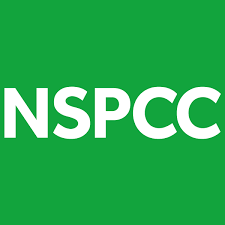
Contacts to the NSPCC’s helpline about the impact of domestic abuse on children have surged by almost a third since the start of the lockdown, to an average of one an hour.
The NSPCC helpline responded to 1,500 contacts about domestic abuse from across the UK between 23 March and 17 May 2020, resulting in 191 referrals being made to local agencies in the North West.
The charity argues the increased risks during the crisis further highlight the need for the Government to amend the law to recognise how the daily nightmare of violence and coercive control can impact on children and why they must have access to specialist support to recover.
The Domestic Abuse Bill is at Committee stage and in its current form fails to do that despite repeated calls from multiple experts, including the Domestic Abuse, Children’s and Victim’s Commissioners, as well as the Home Affairs Select Committee.
New analysis of 11 Serious Case Reviews, submitted to MPs as they are set to scrutinise the Bill this week, shows children have been seriously harmed and even died because domestic abuse was not always considered to be a child protection issue.
The issue has been brought to the forefront by the crisis, with 1,500 adults telling the NSPCC’s Helpline since the lockdown about the risks to children who are trapped behind closed doors. 58% led to referrals or a referral update to the local authority.
The month of May saw the highest number of contacts to the helpline about domestic abuse since recording changed in 2016.
In some cases, fears about the virus were exploited to withhold access to children, cut off contact to family and friends, and monitor victims’ movements under the pretext of keeping them safe from the virus. Victims said this made it difficult to leave and speak out.
“My ex-partner has taken my baby son away from me and I don’t know what to do. He stormed into the house the other day saying he was going to take the baby for a few days – he said he wouldn’t get to see him ‘til the summer cos of the lockdown. When I refused, he pushed me against the wall and took off with the baby and house keys. I’ve not heard from him since and I’m really worried about my baby’s safety. My ex can be a bit rough when he handles him, and he sometimes tell him to “shut the **** up”. I told my social worker what’s happened and they’re trying to locate him so I can get my baby back”. (Mother, NSPCC helpline)
Even though children are not always the ones to suffer physical harm, they have told Childline they feel trapped and, in some cases, it has led to depression, suicidal thoughts, self-harm, and eating disorders.
“I really need your help; my dad has been physically abusing my mum. He has an anger problem and it’s getting out of hand. The smallest things make him angry and he starts shouting. I'm terrified of him and I've had enough, I can’t take it anymore - please help me!” (Boy, aged 14, Childline)
"Mum says we can’t use our ‘emergency bags’ until after coronavirus is over”. (Girl, aged 13, Childline)
NSPCC analysis of 11 Serious Case Reviews published since 2019 suggests practitioners struggled to keep their focus on children because their experiences were overshadowed by their parents’ relationship.
In one report, a victim needed to leave her home for her own safety but couldn’t take her child with her and professionals did not consider the risks for the children who were left behind being cared for by the abuser.
In another case, a perpetrator of domestic abuse killed their child and themselves during a contact visit after separating from their partner due to physical violence.
The charity is also calling for a statutory duty for local agencies to deliver specialist community-based services for these children to recover.
Emily Hilton, NSPCC Senior Policy and Public Affairs Officer, said: “This crisis has shone a spotlight on children who are living with the daily nightmare of domestic abuse.
“The Bill has the chance to transform the help available for these children but, despite pleas from multiple experts, the Government is deliberately turning a blind eye to the impact it has on children.
“The Government should grasp the landmark opportunity offered by the Domestic Abuse Bill and ensure children get the protection and support they need.”
- The full analysis of Serious Case Reviews will be available at nspcc.org.uk/learning. A list of the case reviews analysed for this briefing is available on the NSPCC Library Catalogue.
- The calls increased 32% from an average of around 140 contacts a week earlier this year (6 Jan to 22 March), to an average of around 185 contacts a week since the government’s stay at home guidance was issued.
- The month of May saw the highest number of domestic abuse contacts (1,017) since the charity’s method of recording last changed, which was the beginning of the 2016-2021 strategy.
- This is the highest number of domestic abuse contacts since the charity’s method of recording last changed, which was the beginning of the 2016-2021 strategy.
- The NSPCC’s Domestic Abuse Recovering Together (DART) service helps children and their mums talk to each other about the domestic abuse they suffered and begin to recover and rebuild their relationships.
- Adults concerned about a child living with domestic abuse can contact the NSPCC Helpline confidentially for advice and support on 0808 800 5000 or email help@nspcc.org.uk
- Children with any worries can contact Childline on 0800 1111 or www.childline.org.uk.
All names and potentially identifying details have been changed to protect the identity of children and the individuals contacting the NSPCC and Childline. Quotes are created from real Childline counselling sessions and Helpline contacts but are not necessarily direct quotes.
"I’m really scared of my dad, especially when he’s been drinking. Sometimes he gets really angry and throws things at my mum. It’s been getting worse since the coronavirus and I worry a lot. I have no idea what to do as I can't escape because of the lockdown." (Boy, 15, Childline)
“I really wish I was back living with my foster carers, but I’m stuck at my mum’s place cos of the lockdown. My step-dad makes mum drink every night and I hear them shouting and throwing stuff at each other - it makes me so uncomfortable. I don’t like being alone with my step-dad either – he tries to kiss me really hard on the neck and other private places. Last time it made a bruise. He said I’m not allowed to ‘snitch’ on him as everyone will be cross with me. I don’t know what to do” (Girl, age unknown, Childline)
“I want my parents to break up. They are constantly arguing and they both have started drinking a lot more. They say some pretty horrible things to each other. It's been like this for ages. Since the lockdown, my mum has been physically abusive and I'm really worried because they both have spent the night in jail before. I have no school work to do and my mum is not working and everything feels like it's getting worse.” (Girl, aged 16, Childline)
"We should be allowed back to school now so my step-dad stops hitting mummy” (Boy, aged 10, Childline)
“I am worried for the safety of two children living with their parents. I regularly see the parents shouting and screaming profanities at each other in front of the children. It is really upsetting. The mother is very aggressive and violent towards her partner and I'm worried about what the two children might be experiencing at home. The police have been called out to the homes several times and I worry about the effect it is having on the kids." (Relative, NSPCC helpline)
“I used to only hear them late at night or first thing in the morning before I left for work – now I’m working from home, I realise it’s happening throughout the day. I sometimes hear the toddler crying as the parents are fighting. It pains me to think the child is having to live like this – can you help?” (Neighbour, NSPCC helpline)
About the NSPCC:
The NSPCC is the leading children’s charity fighting to end child abuse in the UK and Channel Islands. Using voluntary donations, which make up around 90 per cent of our funding, we help children who’ve been abused to rebuild their lives, we protect children at risk, and we find the best ways of preventing child abuse from ever happening. So when a child needs a helping hand, we’ll be there. When parents are finding it tough, we’ll help. When laws need to change, or governments need to do more, we won’t give up until things improve.
Our Childline service provides a safe, confidential place for children with no one else to turn to, whatever their worry, whenever they need help.
Our free NSPCC helpline provides adults with a place they can get advice and support, share their concerns about a child or get general information about child protection. Adults can contact the helpline 365 days a year.

 Three men jailed for cross-border burglary series
Three men jailed for cross-border burglary series
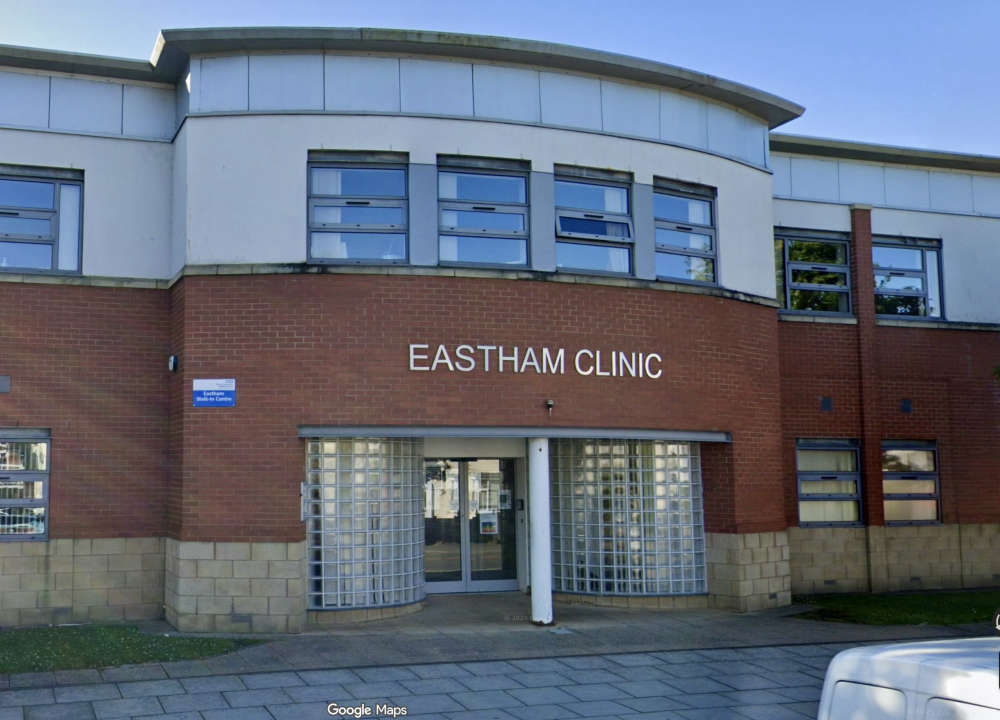 Local MP reassured over temporary Eastham Walk-In Centre closure
Local MP reassured over temporary Eastham Walk-In Centre closure
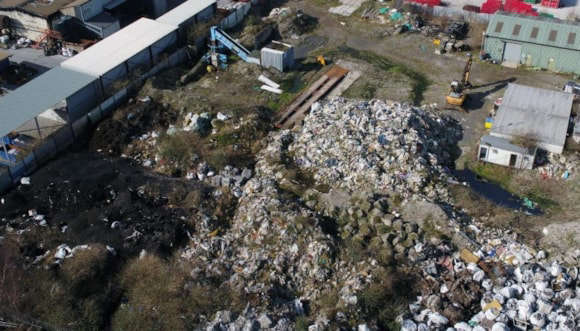 Successful prosecution after waste stored illegally at Sandycroft site
Successful prosecution after waste stored illegally at Sandycroft site
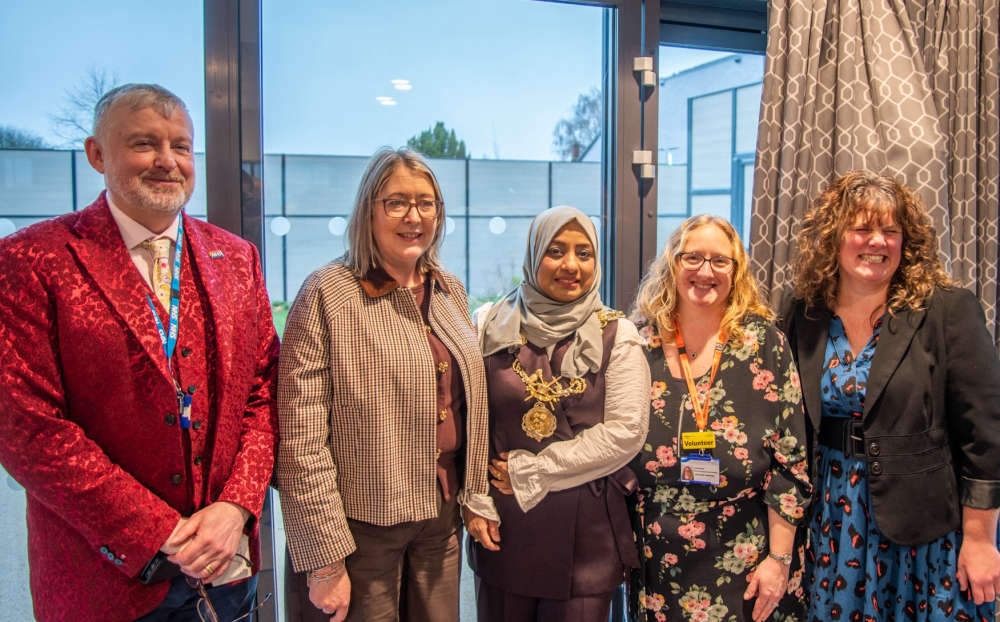 New specialist mental health hospital opens to Mums, babies and families across Cheshire
New specialist mental health hospital opens to Mums, babies and families across Cheshire
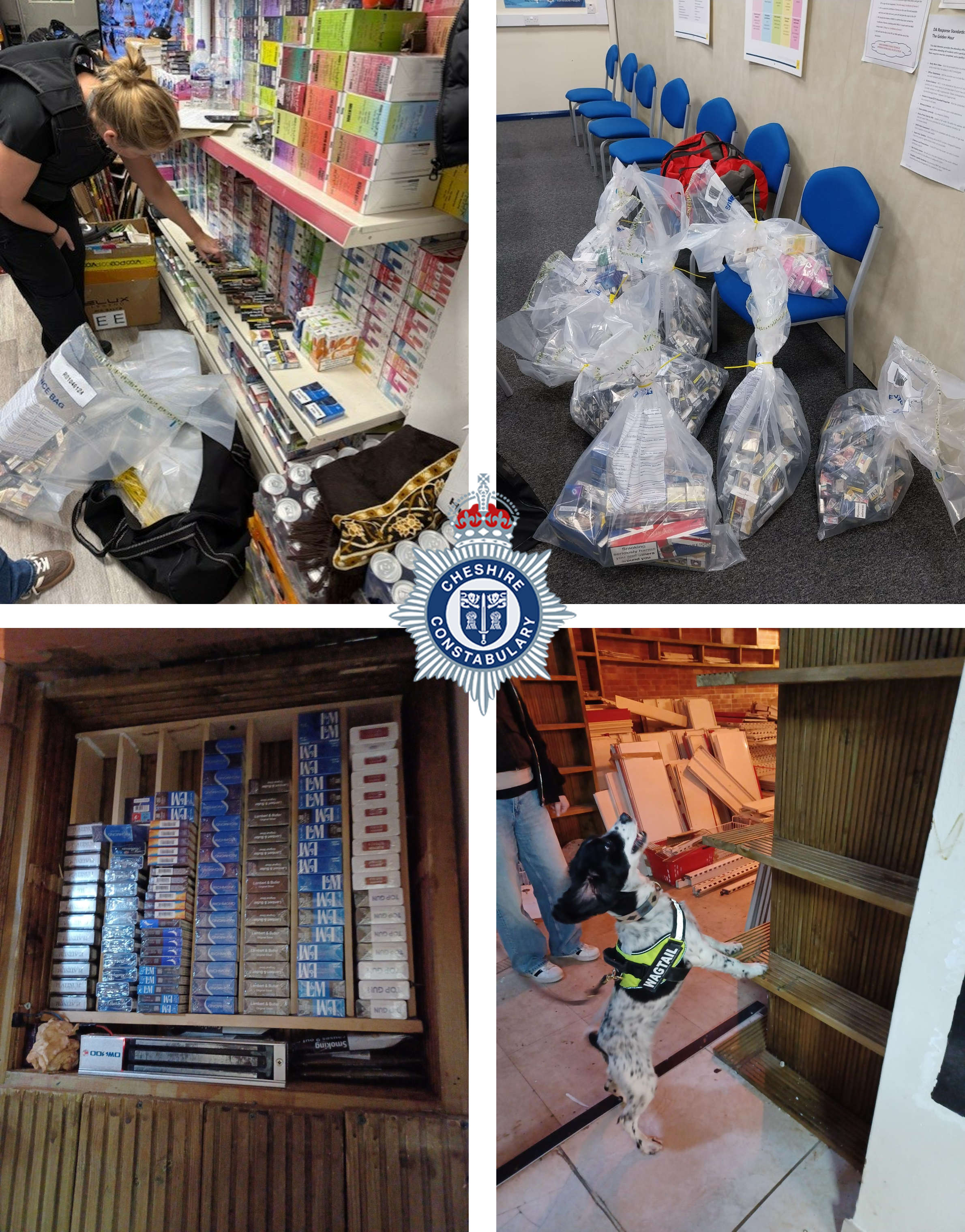 50,000 illegal cigarettes seized, shops closed and arrests made during immigration crime operation
50,000 illegal cigarettes seized, shops closed and arrests made during immigration crime operation
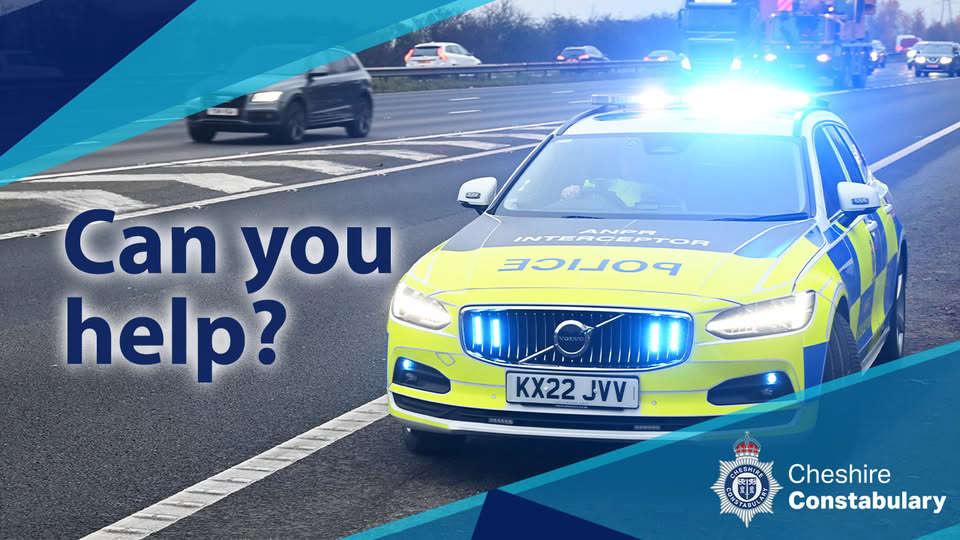 Appeal for information following serious collision in Ellesmere Port
Appeal for information following serious collision in Ellesmere Port
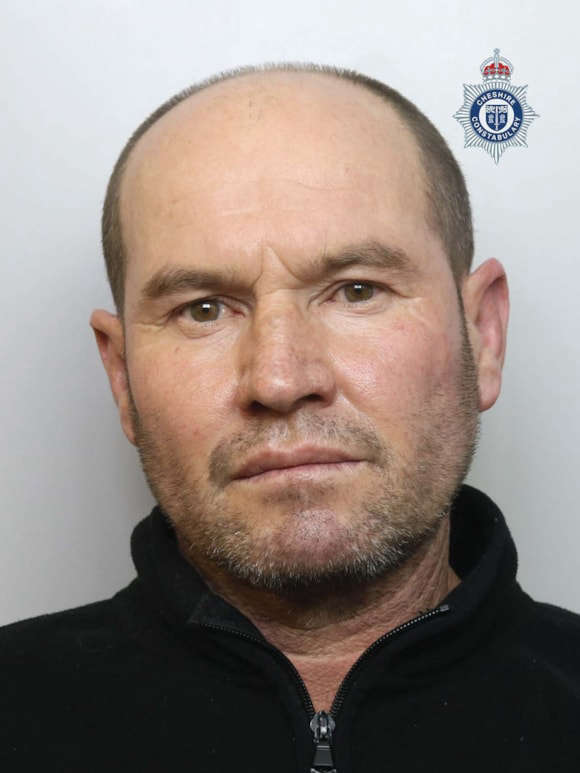 Man jailed for Ellesmere Port cannabis farm
Man jailed for Ellesmere Port cannabis farm
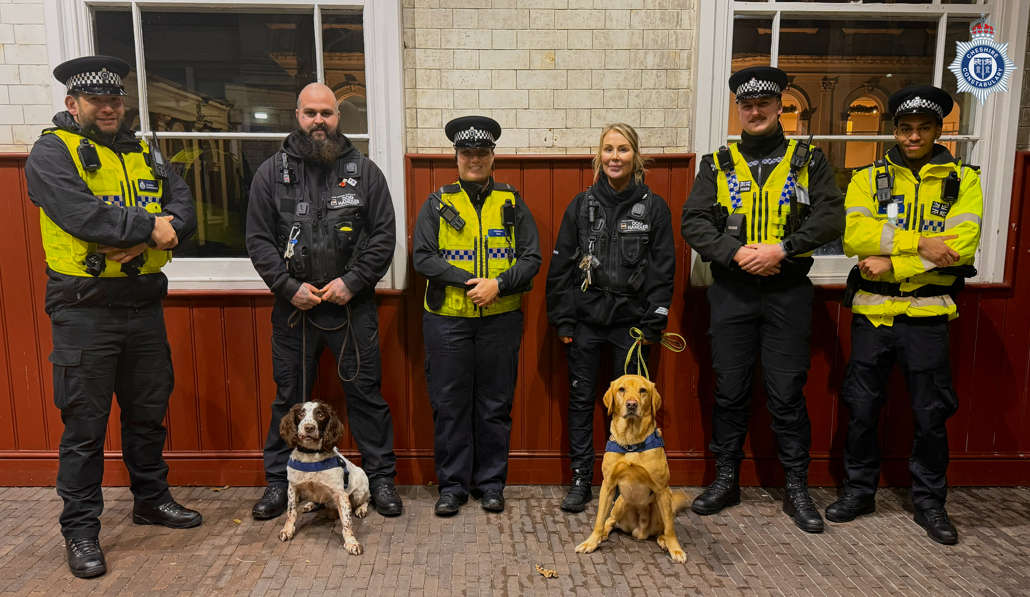 Passive drug dog operations take place in Chester
Passive drug dog operations take place in Chester
 Chester Pride Christmas Day Buffet Meal
Chester Pride Christmas Day Buffet Meal
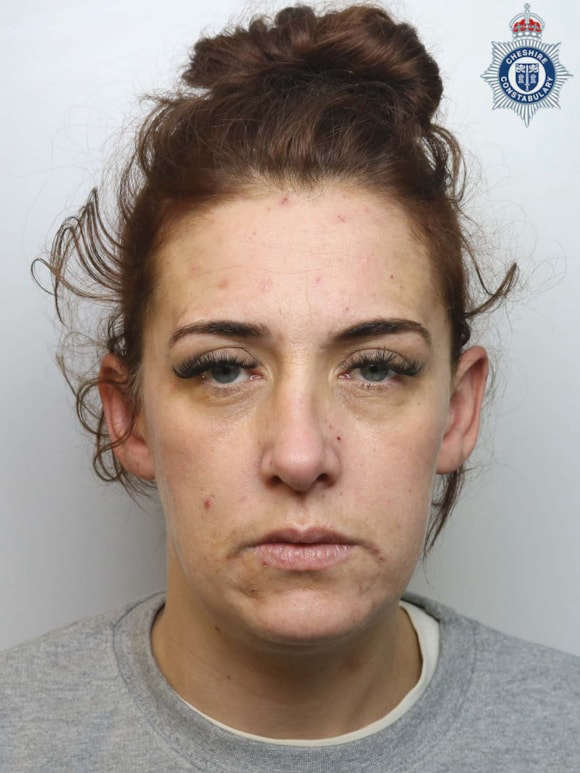 Woman barred from shops in Ellesmere Port
Woman barred from shops in Ellesmere Port
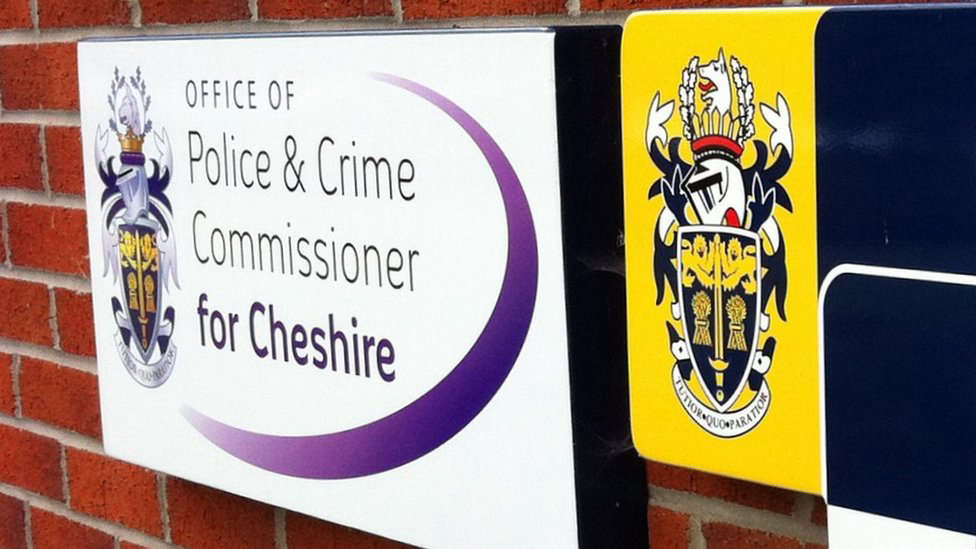 A message from the Cheshire Police and Crime Commissioner
A message from the Cheshire Police and Crime Commissioner
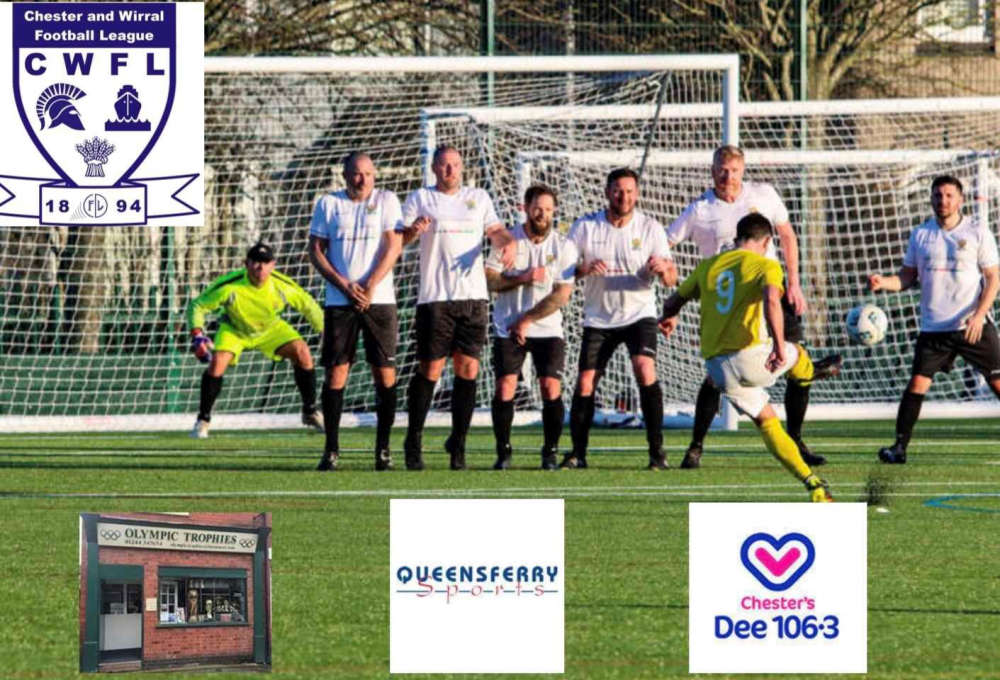 Chester & Wirral Football League - Weekend Round Up
Chester & Wirral Football League - Weekend Round Up
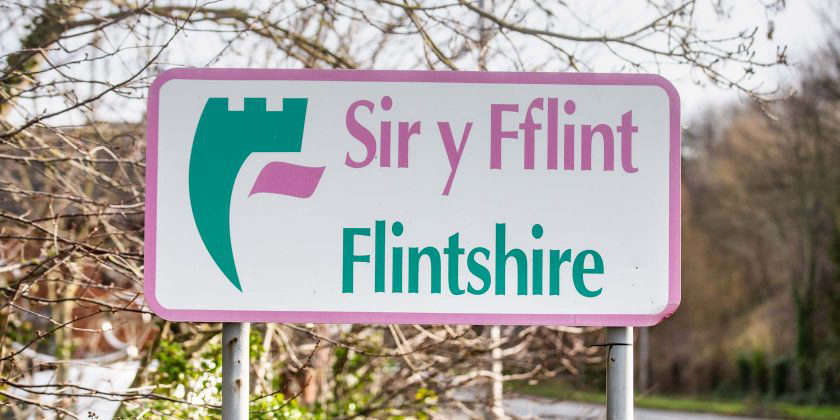 Suicide prevention action plan could be developed for Flintshire
Suicide prevention action plan could be developed for Flintshire
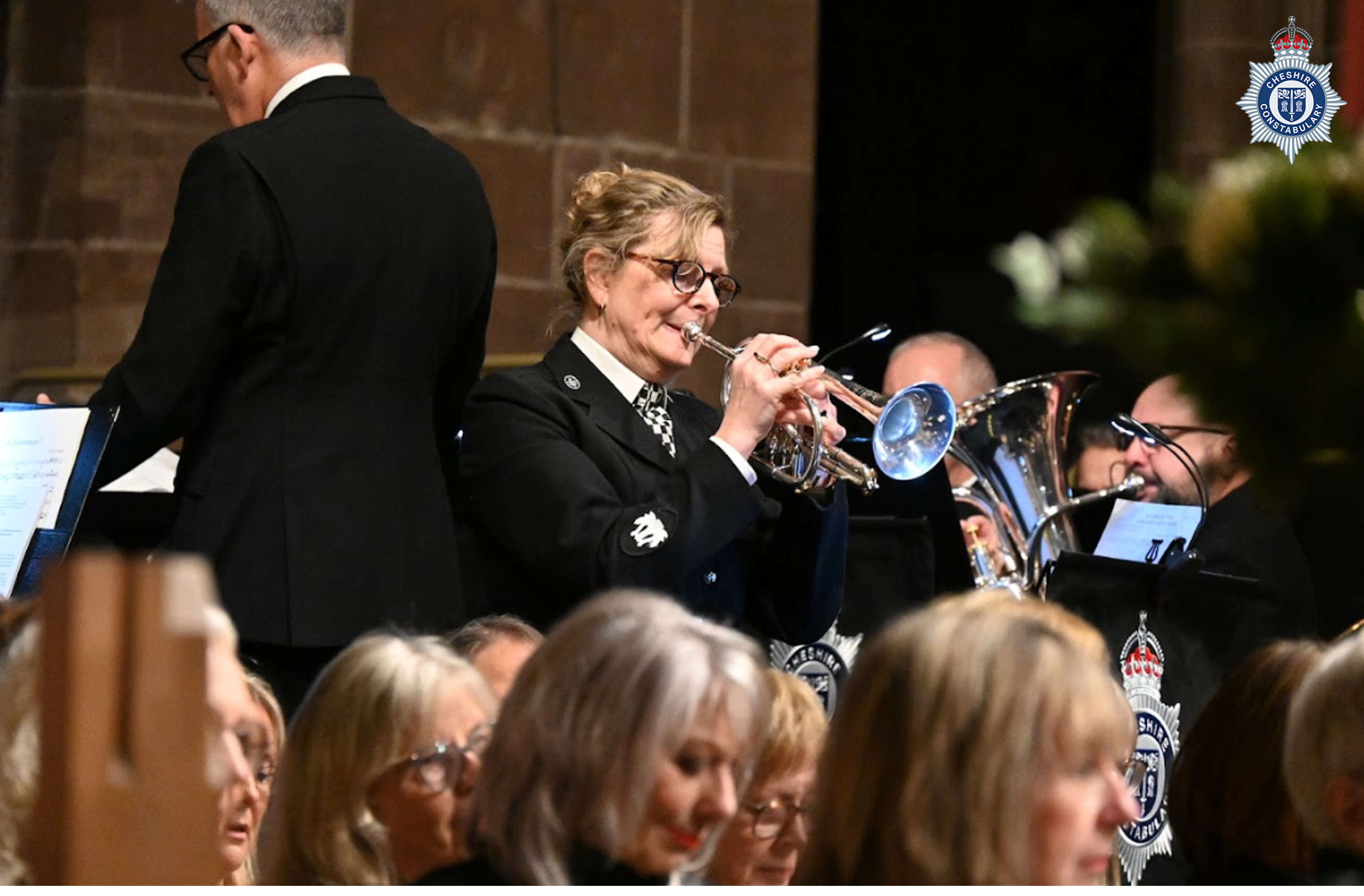 Christmas comes early at Constabulary's 2025 Carol Concert
Christmas comes early at Constabulary's 2025 Carol Concert
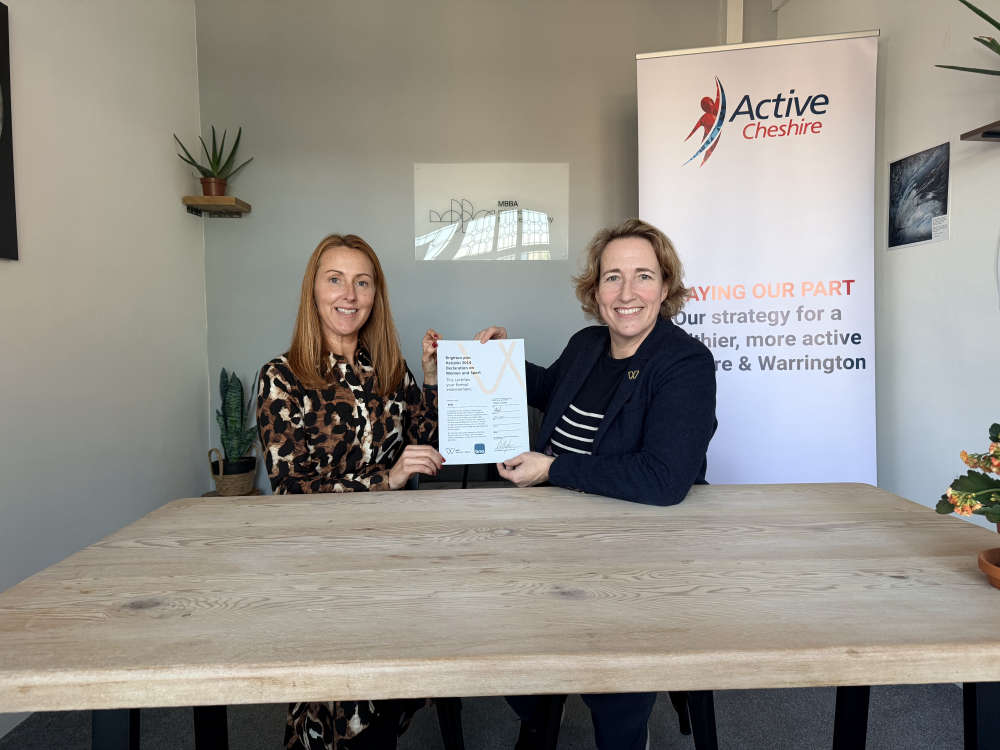 Brio takes a significant step forward to support women in sport
Brio takes a significant step forward to support women in sport
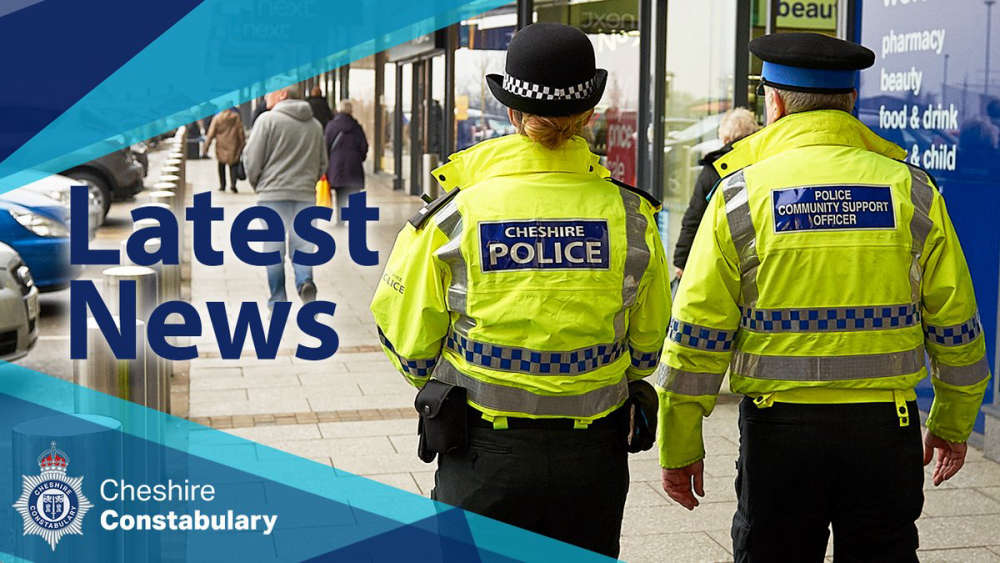 Man guilty of attempting to rape a woman in Neston
Man guilty of attempting to rape a woman in Neston
 CELEBRITY GUEST CONDUCTOR TO JOIN TOP CHESTER CHOIR FOR JOYFUL FESTIVE CONCERT
CELEBRITY GUEST CONDUCTOR TO JOIN TOP CHESTER CHOIR FOR JOYFUL FESTIVE CONCERT
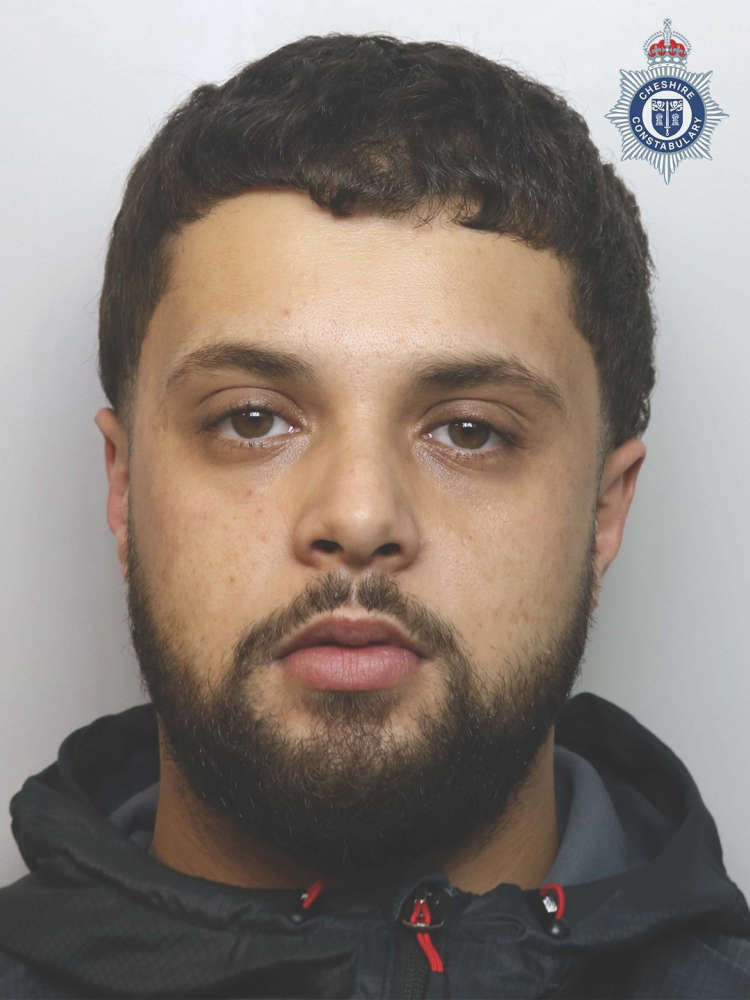 Man jailed for drugs offences in Chester
Man jailed for drugs offences in Chester